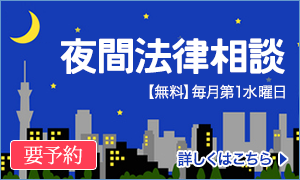Saviour Siblings Legal in Nz
So-called “rescue siblings” are only valued because they can do something for a child who has already been born. But embryos that are not tissues are not evaluated at all by parents and fertility clinic staff. They are the bottom of the pile. These unique individuals are perceived as worthless because they seem to have nothing to offer. They are then discarded as if they were skin cells, not a nascent human life. If they are lucky, their lives will be suspended because they are frozen indefinitely. On August 18, 2014, new guidelines for preimplantation genetic diagnosis using tissue typing of human leukocyte antigen were published, making “sibling rescuers” more likely. The guidelines are developed by the Advisory Committee (ACART), whose task is to advise the Ethics Committee (ECART) on all procedures and research relating to reproductive technologies. According to the guidelines, preimplantation genetic diagnosis associated with tissue typing can only be performed if the resulting child is the sibling of the child to be treated.
It is not legal for fertility clinics to use screening to select the sex of the child. The use of HLA tissue typing in all circumstances is not consistent with a Catholic understanding of the dignity of human reproduction and the dignity of persons. However, given the current circumstances in which we find ourselves and for the reasons set out above, we strongly maintain that the guidelines remain as they are. In other words, we believe that the revised guidelines continue to limit the use of PGD with HLA tissue typing to situations where the disease is genetic and, further, continue to restrict its use exclusively to the benefit of genetic siblings. PGD with HLA tissue typing creates an alternative “opening scene” for the story of a new life unfolding, in which another child`s primary intention is arguably utilitarian. The child is seen primarily as a means to an end, even if he or she is later regarded and treated as lovable. The context of such a birth is undoubtedly different from that of a child who is desired only for himself and for no other reason. Therefore, the conception of a child savior leads to a whole new relational dynamic within a family. There are so many ethical and moral concerns surrounding the IVF process. The procedure separates the act of procreation from the conjugal union. Then, adding the creation of many people to find one who “saves” a brother or sister adds to the immorality of the procedure. Equally important, at the societal level, by introducing a conditional element into our thinking about children and allowing more and more control over children by adults, this technology arguably pushes us further down the continuum that makes it easier to see and treat children more and more as products of adult desires.
We are always against all forms of IPR. Given that current regulations in New Zealand already allow the use of PGD in certain circumstances, and although neither IVF, nor embryo selection, nor embryo destruction are tolerated, our comments on the proposed guidelines are made with the intention of limiting harm. We strongly believe that the current restrictions on the use of PGD will not be further relaxed under any circumstances. In debates about the use of assisted human reproduction technology, Christian Catholics have a common starting point with all New Zealanders; a holistic concern for the health and well-being of individuals and society as a whole. Along with others, we also share the conviction that the principle of reproductive freedom does not confer the right to full choice or access, but signals the importance of the interests at stake and the respect due. The current discussion on preimplantation genetic diagnosis (PGD) with human leukocyte antigen testing (HLA tissue typing) is once again about the exact nature of the limitations of personal reproductive choice. Catholic teaching on IVF and PGD reflects the fact that in our decisions about how we use to have children, there are a number of important human values at stake that are essential to human well-being. In what we say, and through the meanings conveyed by our actions, we must support the fact that our children are people who have the right to be loved for no other reason than what they are. We do not question the nobility of wanting to cure terrible diseases. In fact, the Catholic tradition of health defends and promotes this. What is being ethically challenged is how remedies are sought. There is much wisdom in the idea that it is what we do at the beginning of life that sets the stage for our lifelong attitude toward our children.
Personal experiences and awareness of culture and history have certainly taught us that there is a link between parents` motives for conceiving a child and the type of relationship they have with them, as well as how children are perceived and treated within a culture or society. Catholic doctrine emphasizes that there is a rational domination over nature that man can exercise. Medical science and technology are valuable resources if they are put at the service of humanity and promote the common good. Our arguments in this brief are not about the morality of technology itself. Rather, our concern is the protection of human dignity and well-being from the risks arising from the use of biomedical techniques in early life; in particular, our ability to exert more and more control over the types of children we have through the increasing use of PGD. We propose that New Zealand`s policy on PGD with HLA tissue typing continue to limit the use of this technology to situations where the affected child suffers from a monogenic familial disorder or a sex-related family disorder and the embryo is also at risk of being affected for the following reasons: We believe that all embryos have the same moral status and human dignity. While this is rightly seen as an extension of the Catholic faith regarding embryonic status, we know that many other people agree with this belief, including those who may not realize that the moral status of an embryo is equal to that of a person. This attitude excludes discrimination against embryos on health or disability grounds. According to the Sunday Star Times, the mother is currently 13 weeks pregnant.
When the baby is born, umbilical cord stem cells are transplanted into the sick child. It is hoped that stem cells will be a cure. The fact that the individual and societal negative consequences of the use of assisted reproduction techniques are “far from obvious” is logically a strong reason for not lifting restrictions on the use of HLA tissue typing. We are concerned that, in the minds of many, the lack of evidence of negative consequences is seen as a reason to move forward. The best way to do this is not to “play God” in the first place. Creating embryos in a petri dish allows the fertility doctor to decide who should live and who has the chance to live. It is a power that no human being should ever have. Approval of such procedures must be granted by the Ethics Committee for Assisted Reproductive Technologies (ECART). So far, none have been granted for this purpose. All human life is sacred and must therefore be treated with dignity and respect. For the first time in New Zealand, a family has been given permission to carry a baby grown up with the specific intention of saving an elderly sick sibling. As far as our view on PGD is concerned, we repeat what we have written on other occasions: PGD inevitably involves the deliberate creation of additional embryos that are never implanted.
In this regard, Catholic teaching affirms that the fruit of human generation requires, from the first moment of existence, the unconditional moral respect due to man in his physical and spiritual fullness. Throwing away embryos for any reason is unacceptable. The embryo was selected for implantation after preimplantation genetic diagnosis (PGD) with tissue typing of human leukocyte antigen (HLA) revealed tissue match with the sibling with sickle cell anemia. We believe that the use of PGD with HLA tissue typing should not be extended to its use for the benefit of close relatives for the following reasons: A Catholic understanding and commitment to the dignity of human life affirms that the only legitimate intervention on an embryo occurs in situations where it “respects the life and integrity of the embryo and aims at its protection or healing as an individual.” In our view, the establishment of a public umbilical cord blood bank in New Zealand would be a more constructive and pragmatic response to this question. In what follows, we will comment on the two key issues raised by the proposed new guidelines: (i) whether or not the use of HLA tissue typing should be used solely for the benefit of a genetic sibling, and (ii) the extension of the policy to allow screening for tissue typing of embryos for a non-genetic disease. Several embryos must be created in the laboratory (IVF) for PGD to take place. On day 3 or 5 of embryonic development, one or two cells are taken from each embryo and examined. Those that do not match the tissues are often discarded. Some can be frozen. We are particularly concerned about the robustness of the ethical debate on the use of assisted reproductive technologies.



